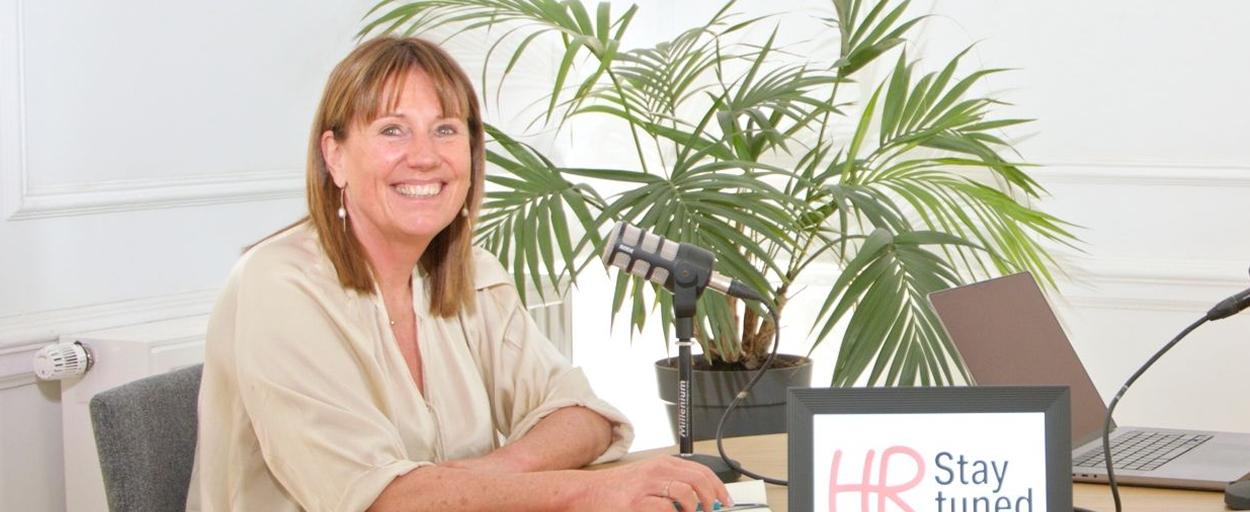
What if your employees became your best allies for the future?
Your talents of tomorrow are already with you. Discover how internal mobility transforms your talent management, boosts engagement, and secures your future.
In a world where there is constant talk of a talent war, the search for meaning at work, and more humane governance, one question deserves to be asked: what if your employees became your best allies in building the future of your company?
I explored this topic in an exciting episode of my podcast HR Stay Tuned, alongside Sabine Colson, Investment Manager at Wallonie Entreprendre, an expert in management buyouts and employee share ownership. Together, we discussed strategy, HR, business transfer, emotions... and above all, a different way of doing business.
Why talk about management buyout and employee share ownership in 2025?
Because the context demands it.
- The aging of SME leaders makes business succession a critical economic issue.
- Today's talents (and even more so those of tomorrow) no longer just want to “work”. They want to participate, build, influence.
- Commitment becomes a strategic factor, not just HR.
In this context, the mechanisms of management buyout (MBO) or employee share ownership allow for an internal, gradual, aligned transition. They create continuity, strengthen the local roots and stimulate performance.
MBO vs Employee Shareholding: What's the Difference?
Two approaches, one same philosophy.
➤ A management buyout is when one or more executives or managers acquire all or part of the company.
E.g.: A CEO and their committee take over the company from a founder who is retiring.
➤ Employee share ownership is when the capital is opened up to a broader segment of the workforce.
For example: All employees can invest in their company, often through a collective investment vehicle.
What these two models have in common:
✅ A desire to sustain the business project.
✅ A strategic involvement of the teams strengthened.
✅ A more shared governance and more humane.
When the human becomes strategic
What Sabine Colson brilliantly highlights is that these structures are not just economic. They are emotional, human, deeply connected to the corporate culture.
“At Technord or I-care, you can see that employees no longer say 'I work for', but 'I am part of'. It changes everything.” – Sabine Colson
Employee shareholding creates pride, accountability, but also a new form of shared leadership.
Practically speaking, how does one go about it?
No need to have an immediate resale project. Here are some concrete ideas to start a strategic reflection:
- Map your internal talents: who might be ready to take over? to get more involved?
- Organize open discussion times on the company's long-term vision.
- Train your teams in governance, finance, risk: commitment comes through understanding.
- Contact an organization like Wallonie Entreprendre, which can support these transitions, even from the very early stages.
And above all: dare to ask the question, even if everything is not ready.
My personal feedback
When I raised funds for Jobbloom, I also asked myself: what kind of governance do I want? What role for my team in this project?
These are topics that deeply challenge our stance as leaders. It's not just about capital or strategy. It's a vision of the company. Of its mission. Of its future.
Conclusion: the company as a collective adventure
Le management buyout et l’actionnariat salarié ne sont pas des solutions miracles. Mais ce sont des outils puissants pour réconcilier performance, pérennité et engagement.
And what if, instead of looking for an external buyer, we looked around us?
What if, instead of looking for solutions to resignations, demotivation, the war for talent... we opened the door to the talents we already have?
Thanks to Sabine Colson for her valuable insights.





